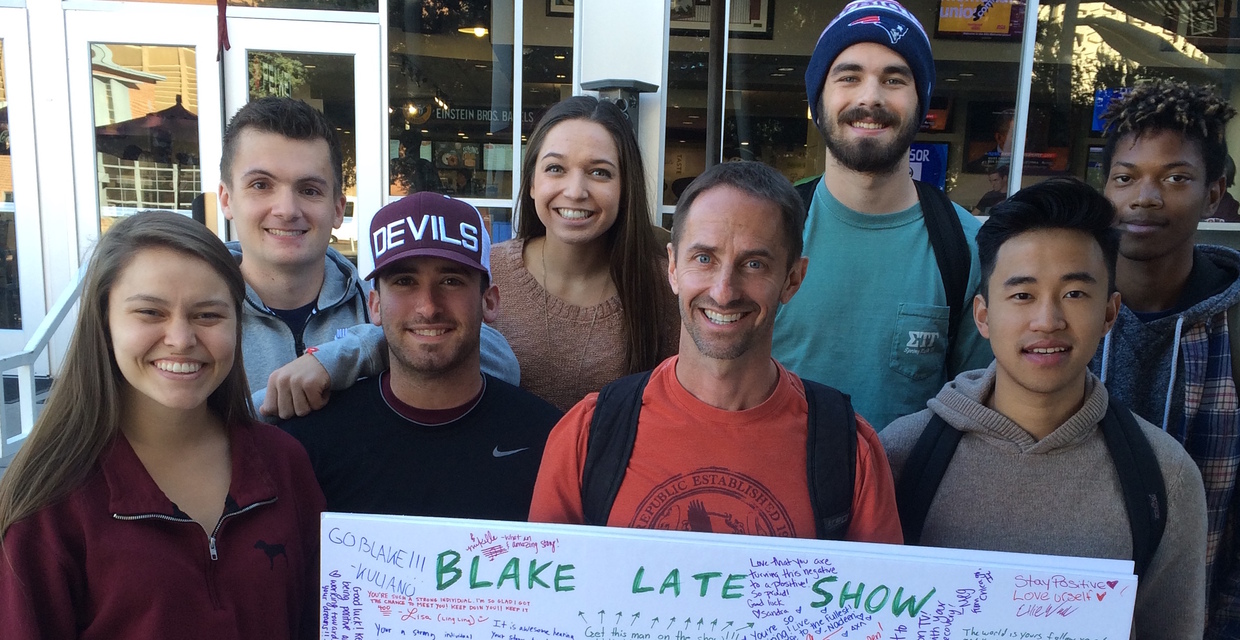
One December night six years ago, while Ron Blake was asleep in his Phoenix, Ariz., home, three men broke in, held him down and sexually assaulted him.
One of those three men was Blake’s life partner.
Blake says his partner had struggled with alcohol addiction and that he could be physically and emotionally abusive when he was drinking. At one point, the two of them had separated but they got back together. “I stayed, because I thought I could help him,” he says. “It’s tough to watch someone you care for struggle. It took a toll on me,” he says.
“He let those people up here,” Blake says of his ex-partner. “He was drunk, and so were the other two,” Blake says. While one of the men raped him, the others did nothing to stop it.
“It took me a long time to come to understand that my life partner was involved. He said he was drinking, but as time has gone on and I’ve gone to counseling I realize that doesn’t matter,” Blake says. “My ex and his friends said he made a mistake, but that mistake almost cost me my life. It left me with PTSD. It might have been 15, 20, 30 minutes for them, but I have a lifetime of dealing with this.”
At the time of the assault, Blake called the police. They separated the men and found that each person told a very different version of what happened.
“The story they told was that it was a big misunderstanding. That it had been out of control but it was okay now. But it wasn’t. I was in shock at that point. I was thinking, ‘This is my life partner. How can he be involved?’ It was hard to process. I don’t remember anything after the police left,” Blake says.
Coming to Terms with What Happened
While there was an incident report from that night, Blake didn’t file an official police report right away. At first, he stayed with his partner after the rape, believing he could help his partner overcome his alcohol dependency.
“I thought, for better or worse, in sickness or wellness, I would stay with this individual. For me, the rape didn’t come alive until two or two and a half years after. I knew what happened, but my mind wasn’t putting it all together. It’s like your mind knows something happened, but it’s scattered all around your brain, like a mirror that’s cracked. It took me a while,” he says. “Years later I filed an official police report. It took me that long to figure out I was raped. I had never put it in terms of rape and domestic violence.”
While no legal action came of the official police report, it gave Blake some satisfaction to file it. “When I finally filled out the official report it felt so good. It was no longer just an incident report. It said, ‘This is what happened that night,’ in my words.”
A Path Toward Healing
Blake was diagnosed with PTSD in the summer of 2014. “I had a lot of anger issues and I didn’t want to be around people.” Plagued by sleep problems and nightmares, in May of last year, he tried to take his own life. After that, he turned to social media for support, posting about his sexual assault on Facebook. “Now my friends knew. A hundred-and-fifty or 200 friends messaged me. Nobody had known,” he says.
One night in November 2015 Blake was watching The Late Show with Stephen Colbert. “It made me laugh and I identified with that. I made a decision to use that laughter for a purpose. It gave me hope.” Blake’s decision: To meet people and have them share thoughts on poster boards in a campaign to get him featured on The Late Show.
Blake is approaching a year since he began his project and he says he’s never missed a day of collecting signatures. “Sometimes it’s just a couple of people and sometimes it’s more than 225,” he says, noting that he is averaging 57 people a day. “And it’s having conversations. It’s not just walking up and saying, ‘sign this’. It takes about five hours a day. It’s been amazing.
“I identified something close to me—that’s laughter—and made the decision to meet people. I’ve met more than 20,000 people—total strangers—and they’ve written the most incredible messages. I’m up to 274 message boards now and that’s healing. Every day I’m telling my story and people are sharing their stories and that’s how I’m healing. I found my own unique way to take back my life.”
While Blake hasn’t landed a spot on The Late Show yet, he has shared his campaign on YouTube, and his story is gaining media attention. He’s spoken at schools, universities, parks, festivals, events and coffee shops, and has visited six states collecting his messages of hope and support. “I can’t believe how much people share with me. It’s truly been amazing.”
He hopes to turn the message boards—now housed in a storage unit as well as in his home—into an art exhibit. “To see thousands of pictures of people and messages of hope would be a powerful art exhibit for domestic violence and PTSD. I never expected it would get this big and it would be amazing to share them with people,” he says.
He uses a favorite saying to support his message of hope. “There’s a Walt Disney quote I love: ‘Keep moving forward.’ Whether it’s PTSD, domestic violence, suicide attempts or sexual assault. People write it on the boards and it’s as simple as that and as beautiful as that.”
Sources: https://www.domesticshelters.org/domestic-violence-articles-information/survivor-story-ron-blake#.WHOaUbkzXIV
